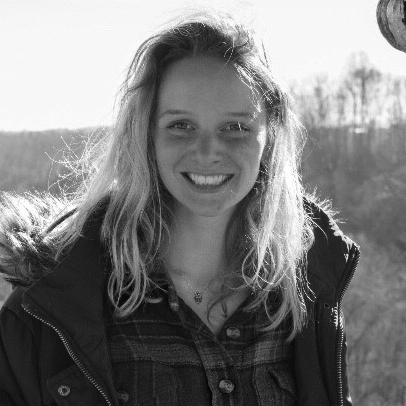Over the summer, Healthy Democracy was grateful to welcome Annabelle LaRosa as our 2020 Nevins Fellow. The Nevins Fellowship, through the McCourtney Institute for Democracy at Penn State, provides students with the opportunity to complete internships at organizations that bring people together to solve common problems. From June through August, Annabelle lent her perspective and expertise to Healthy Democracy, while learning, growing and gaining experience in her field of interest. Even though the internship didn’t look quite as we had planned, given travel limitations due to COVID-19, we are incredibly grateful to her for the time she spent with us throughout the summer. Annabelle worked with us on various projects, including the 2020 Oregon Citizen Assembly on COVID-19 Recovery.
Annabelle shares her thoughts and experiences, as a guest blog contributor:
When I eagerly accepted my fellowship with Healthy Democracy earlier this year, I did so with a fixed vision of the work I’d be doing and how I would learn and grow through my summer experience. I assumed that I would work alongside the HD team in Portland, I’d shake hands with members of the Oregon community, and I would return to Pennsylvania as a coffee snob.
However, as I waited for my departure to Portland, Coronavirus struck. My travel plans were cancelled and my in-person fellowship was converted to a long distance relationship that relied on Zoom interactions.
The Coronavirus had quickly become a vehemently politicized subject. It seemed to me that, despite all of the coverage and discussion that Coronavirus had generated, there was no deliberation occurring between everyday individuals that was absent of pre-conceived agendas or anger. And then, Healthy Democracy announced that they would be holding a Citizen Assembly to discuss COVID-19, which would include a panel of politically and demographically diverse Oregonians.
The assembly consisted of 7 sessions that took place once a week for two hours each Thursday evening. The panel of 36 Oregonians collaborated to determine what key question they would focus on answering during their deliberations and identify the general principles that would serve as a guide to their recommendations, and discussed their positions on Oregon’s response to COVID-19. Through conversations that were moderated by facilitators, the panelists explored both their shared and divergent values and viewpoints; which, they explained, were often tied to their individual experiences such as those of being parents, grandparents, homeowners, or students. Between serious conversations regarding COVID-19, panelists had moments of genuine bonding: one panelist’s toddler made an appearance and introduced herself; another explained to the group that he was a car aficionado, which is why there were mini-models of cars sitting behind him. The whole group shared a laugh as one panelist told of her troubles connecting to the Zoom call. These were very human moments of authentic connection that I did not know would occur while discussing such a polarizing topic.
What I learned from the experience is that in addition to creating a collaborative space for people to engage with one another, the Assembly allowed the panelists to converse, disagree, and learn from each other while maintaining mutual respect, compassion, and oftentimes humor. No matter the direction of the conversation, the tone remained positive and panelists maintained respect for others in their group.
This experience has demonstrated to me that despite the high level of political polarization in the country, productive conversation pertaining to some of the most politically charged topics in politics is not only possible, but it is happening.
